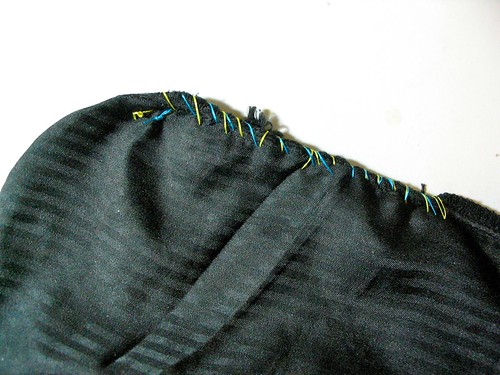Here is the remarkable Table of Contents from Adler's
Aristotle for Everybody. This is actually the alternative Table of Contents which he gives on p. 193. It seems heavy, but it's actually
way easier than Aristotle's crazy-hard-to-understand translations.
PART I. ARISTOTLE'S UNIVERSE OF DISCOURSE: HIS CATEGORIES AND HIS TAXONOMY
1. Aristotle's Fourfold Classification of Sensible, Material Substances: Inorganic Bodies, Plants, Animals, Men
2. The Range of Beings: The Ten Categories
3. Productive, Practical, and Theoretic Reason or Mind
PART II. ARISTOTLE'S PHILOSOPHY OF NATURE AND OF ART
4. Nature as an Artist and the Human Artist as Imitator of Nature
5. The Three Main Modes of Accidental Change: Change of Place, Change of Quality, Change of Quantity
6. Aristotle's Doctrine of the Four Causes: Efficient, Material, Formal, and Final
7. Further Developments in the Theory of Potentiality and Actuality, and of Matter and Form, Especially with Respect to Substantial Change, or Generation and Corruption
8. Aristotle's Analysis of the Intellectual Factors in Artistic Production and His Classification of the Arts
PART III. ARISTOTLE'S MORAL AND POLITICAL PHILOSOPHY
9. The End as the First Principle in Practical Thinking and the Use of Means as the Beginning of Action: The End as First in the Order of Intention and Last in the Order of Execution
10. Happiness Conceived as That Which Leaves Nothing to Be Desired and, as so Conceived, the Final or Ultimate End to Be Sought
11. Aristotle's Distinction Between Real and Apparent Goods, or Between Goods That Ought to Be Desired and Goos That ARe in Fact Desired, Together with His Distinction Between Natural and Acquired Desires
12. The Real Goods That Are the Components of the Whole of Goods That Constitute Happiness, and Moral Virtue as Indispensable to the Pursuit of Happiness
13. Moral Virtue and Good Fortune as the Two Indispensable Operative Factors in the Pursuit of Happiness
14. The Obligations of the Individual With Regard to the Happiness of Others and With Regard to the Welfare of the Organized Community
15. The Role of the State in Abetting or Facilitating the Individual's Pursuit of Happiness
PART IV. ARISTOTLE'S PSYCHOLOGY, LOGIC, AND THEORY OF KNOWLEDGE
16. The Senses and the Intellect: Perception, Memory, Imagination, and Conceptual Thought
17. Immediate Inference and Syllogistic Reasoning
18. Theoretical and Practical Truth
19. Aristotle's Theory of Knowledge and His Distinction Between Knowledge and Right Opinion
PART V. ARISTOTLE'S COSMOLOGY AND THEOLOGY
20. The Actual and the Potential Infinite
21. The Eternity of the World and of Motion or Change
22. The Immateriality of the Human Intellect: Conceptual Thought as Involving the Abstraction of Forms From Matter
23. The Prime Mover: The Divine Being as Pure Actuality






